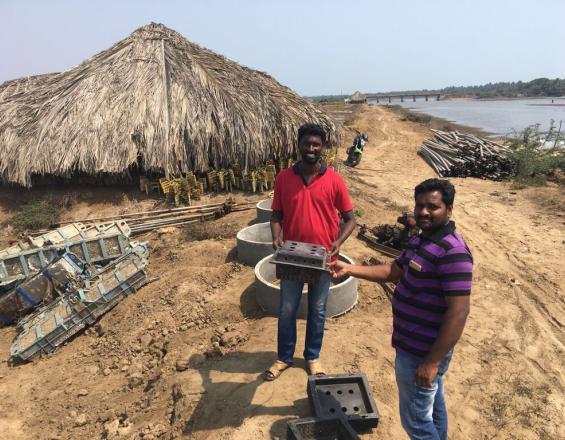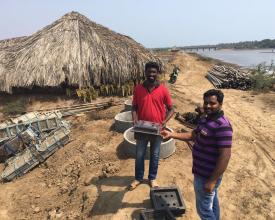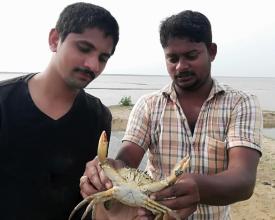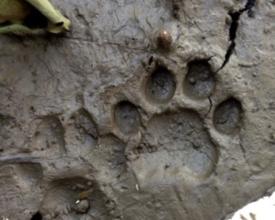Cangrejos de manglar: un proyecto de medios de vida alternativos para ayudar a proteger a los gatos pescadores y su hábitat de manglares, de importancia mundial, en la costa sur de la India.

En la zona costera de Andhra Pradesh (India), la deforestación y la acuicultura amenazan los manglares desprotegidos y varias especies vulnerables que habitan en ellos, principalmente los gatos pescadores(Prionailurus viverrinus) y las nutrias de pelaje liso(Lutrogale perspicillata). Una estrategia viable para conservar estos manglares desprotegidos es ofrecer a las comunidades humanas medios de vida alternativos y sostenibles. Una idea que puede frenar la deforestación es la captura sostenible de cangrejos de los manglares(Scylla spp.) con cajas de cultivo de cangrejos en canales de agua naturales entre los manglares. Esta idea es también una alternativa de baja inversión a los estanques de acuicultura comercial, que son más caros de mantener, contaminan las aguas naturales y son propensos a pérdidas de ingresos debido a la infertilidad del suelo.
Contexto
Défis à relever
Ubicación
Impactos
Trabajamos para atajar la deforestación de los manglares costeros y la pérdida de hábitat para los gatos pescadores debido a la acuicultura y la agricultura. Se estima que el 50% o más de la cubierta forestal histórica de manglares en todo el sur y el sudeste de Asia se ha perdido debido a prácticas insostenibles de piscicultura y cría de camarones.
El proyecto "Cangrejos de los manglares" se centra actualmente en pequeñas zonas de manglares no protegidas del sur de la India. Estamos probando la captura de cangrejos en cajas con la población local de tres pueblos: Bendamurlanka (BEN), Samanthakuru (SAM) y Gachakayala Pora (GAC), en el delta del río Godavari, en Andhra Pradesh (India). Hasta ahora, hemos instalado 20 cajas para cangrejos en zonas de manglares desprotegidas y estamos supervisando el crecimiento de dos especies de cangrejos, Scylla serrata y Scylla olivacea , en estas cajas. Esperamos animar al menos a tres personas, una de cada aldea, a que ayuden a ampliar nuestro proyecto piloto de recogida de cangrejos instalando entre 160 y 180 cajas más para finales de 2018 y comercializando los cangrejos recogidos.





